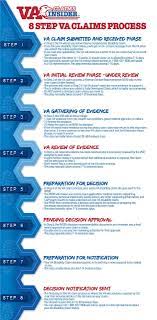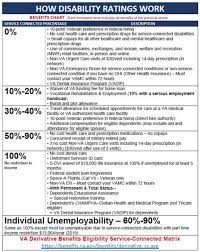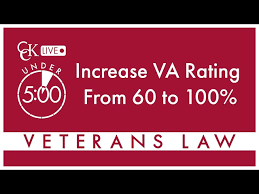VA Medical Claims: Navigating the Path to Care and Compensation
For veterans, accessing proper medical care and receiving compensation for service-related health issues is a critical aspect of their well-being. The Department of Veterans Affairs (VA) plays a vital role in providing healthcare services and administering benefits to eligible veterans. However, navigating the process of filing VA medical claims can often be complex and overwhelming. In this article, we will explore the importance of VA medical claims and provide guidance on how veterans can effectively navigate this path.
First and foremost, it is crucial to understand why filing VA medical claims is essential. Veterans may experience various health conditions as a result of their military service, such as physical injuries, mental health disorders, or exposure to hazardous substances. These conditions may require ongoing medical treatment or specialized care. By filing VA medical claims, veterans can access the necessary healthcare services without incurring significant financial burdens.
The process of filing a VA medical claim begins with gathering relevant documentation that supports your claim. This includes medical records from military service, private healthcare providers, or any other relevant sources. It is important to provide detailed information about your condition, including when it started and how it relates to your military service. The more comprehensive and specific your documentation is, the stronger your claim will be.
Once you have collected all the necessary documentation, you can submit your claim through the VA’s online portal or by mail. It is recommended to keep copies of all submitted documents for your records.
After submitting your claim, it enters the evaluation phase where the VA reviews the evidence provided. This evaluation process typically involves examinations conducted by VA healthcare professionals or contracted specialists who assess the severity and impact of your condition on your daily life.
It’s important to note that not all claims are approved on the first attempt. If your claim is denied or you disagree with the decision made by the VA, you have options for appeal. You can request a review by a higher-level adjudicator, provide additional evidence, or even seek legal assistance from organizations that specialize in supporting veterans with their claims.
While the process of filing VA medical claims can be complex, there are resources available to assist veterans along the way. The VA provides support through its regional offices and medical centers, where trained personnel can guide you through the process and answer any questions you may have. Additionally, numerous veteran service organizations offer free assistance to veterans in preparing and filing their claims.
It is important for veterans to remember that they are not alone in this journey. Seeking support from fellow veterans, family members, or advocacy groups can provide valuable insights and emotional support throughout the claims process.
In conclusion, filing VA medical claims is an essential step for veterans seeking proper healthcare services and compensation for service-related health issues. By understanding the importance of comprehensive documentation and utilizing available resources, veterans can navigate this path with greater confidence. Remember, your service to our nation matters, and you deserve the care and benefits you have earned through your sacrifice.
Frequently Asked Questions About VA Medical Claims: Eligible Medical Conditions, Easiest Claims, Coverage of Expenses, and Required Evidence
- What medical conditions qualify for VA disability?
- What are the easiest things to claim for VA disability?
- Does the VA pay for all medical expenses?
- How much medical evidence is needed for a VA claim?
What medical conditions qualify for VA disability?
The Department of Veterans Affairs (VA) has a comprehensive list of medical conditions that may qualify veterans for disability benefits. The list includes both physical and mental health conditions. It is important to note that each case is evaluated individually, and eligibility for disability benefits depends on several factors, such as the severity of the condition, its connection to military service, and the impact it has on daily life. Here are some examples of medical conditions that may qualify for VA disability:
- Physical Injuries: This category includes conditions such as amputations, traumatic brain injuries (TBI), spinal cord injuries, hearing loss, vision loss, and other impairments resulting from military service.
- Post-Traumatic Stress Disorder (PTSD): PTSD is a mental health condition that can develop after experiencing or witnessing a traumatic event. Veterans who have been diagnosed with PTSD may be eligible for disability benefits.
- Agent Orange-Related Diseases: Exposure to Agent Orange during military service in Vietnam or certain other locations may lead to various medical conditions such as diabetes mellitus type 2, ischemic heart disease, Parkinson’s disease, certain types of cancer, and more.
- Gulf War Syndrome: Veterans who served in the Southwest Asia theater of operations during the Gulf War may be eligible for disability benefits if they have unexplained chronic symptoms such as fatigue, joint pain, respiratory disorders, gastrointestinal problems, or neurological issues.
- Military Sexual Trauma (MST): Veterans who experienced sexual assault or harassment during their military service can develop mental health conditions such as depression, anxiety disorders, or post-traumatic stress disorder (PTSD) related to MST.
- Chronic Illnesses: Conditions like diabetes mellitus type 2, multiple sclerosis (MS), rheumatoid arthritis (RA), lupus (systemic lupus erythematosus), and other chronic diseases that can be linked to military service may qualify for VA disability benefits.
These are just a few examples, and the VA considers a wide range of medical conditions for disability benefits. It is important for veterans to consult with healthcare professionals and the VA to determine their eligibility based on their specific circumstances. The VA will review medical evidence, service records, and other documentation to evaluate each case individually.
What are the easiest things to claim for VA disability?
When it comes to filing VA disability claims, the ease of the process can vary depending on individual circumstances and the specific condition being claimed. However, there are certain conditions that are generally considered easier to claim due to their clear association with military service. Here are a few examples:
- Service-Connected Injuries: If you sustained a physical injury during your military service, such as fractures, joint issues, or back problems, it can be relatively straightforward to establish a direct link between the injury and your time in the military.
- Post-Traumatic Stress Disorder (PTSD): PTSD is a common condition among veterans and can result from experiencing or witnessing traumatic events during service. While providing evidence for PTSD may require documentation from medical professionals and supporting statements from fellow service members, it is a recognized condition by the VA.
- Tinnitus and Hearing Loss: Exposure to loud noises, explosions, or other hazardous conditions during military service can lead to tinnitus (ringing in the ears) or hearing loss. These conditions are often easier to claim due to their well-established connection with military environments.
- Gulf War Syndrome: Veterans who served during the Gulf War era and developed unexplained chronic symptoms like fatigue, joint pain, headaches, or gastrointestinal issues may be eligible for benefits under Gulf War Syndrome claims.
- Agent Orange-Related Conditions: For veterans who served in Vietnam or were exposed to Agent Orange during other conflicts, certain conditions like diabetes mellitus type 2, ischemic heart disease, Parkinson’s disease, and others have been recognized as presumptive conditions linked to Agent Orange exposure.
It’s important to note that even though some conditions may be considered easier to claim than others due to their direct association with military service or established presumptive connections, each case is unique. The success of any claim depends on providing sufficient medical evidence and demonstrating how your condition is connected to your military service.
If you’re unsure about your eligibility or need assistance with the claims process, it’s recommended to reach out to a Veterans Service Officer (VSO) or a reputable veterans’ organization for guidance and support. They can provide personalized advice based on your specific circumstances and help ensure you have the necessary documentation to support your claim.
Does the VA pay for all medical expenses?
The Department of Veterans Affairs (VA) provides a comprehensive healthcare system for eligible veterans, but it’s important to note that the VA does not cover all medical expenses. The VA is responsible for providing care for service-connected conditions—health issues that are directly related to a veteran’s military service.
For service-connected conditions, the VA covers the cost of medical treatment and services, including hospital stays, surgeries, medications, and rehabilitation. However, there may be certain limitations or restrictions depending on the specific circumstances and eligibility criteria.
In addition to service-connected conditions, the VA also provides care for certain non-service-connected conditions. These are typically related to veterans who meet specific income thresholds or have special eligibility status due to factors such as being a former prisoner of war or receiving a Purple Heart.
However, it is important to note that the VA may require co-payments for some services based on factors such as income level and priority group classification. Co-payments can vary depending on the type of care received and the veteran’s financial situation.
For non-service-connected conditions that are not covered by the VA, veterans may need to rely on their private health insurance or Medicare/Medicaid coverage. It is recommended that veterans explore their options and understand what medical expenses are covered by their respective insurance plans.
Additionally, it’s worth mentioning that certain programs within the VA offer additional assistance with healthcare costs. For example, veterans who meet specific criteria may qualify for programs like Veterans Choice Program (VCP) or Veterans Community Care Program (VCCP), which provide access to care outside of traditional VA facilities when necessary.
To fully understand what medical expenses are covered by the VA and what potential costs may be incurred by veterans themselves, it is advisable to consult with a representative from the VA or reach out to your local VA healthcare facility for more detailed information based on your specific circumstances.
How much medical evidence is needed for a VA claim?
The amount of medical evidence needed for a VA claim can vary depending on the specific circumstances and the nature of the claim being made. Generally, it is important to provide sufficient medical evidence to establish a connection between your current condition and your military service.
To strengthen your VA claim, it is recommended to gather as much relevant medical documentation as possible. This may include:
- Service Medical Records: These records document any injuries, illnesses, or treatments received during your military service. They are crucial in establishing a connection between your current condition and your time in the service.
- Post-Service Medical Records: Collect medical records from any healthcare providers you have seen since leaving the military. This includes private doctors, specialists, therapists, or any other healthcare professionals who have treated you for your claimed condition.
- Nexus Letters: A nexus letter is a document written by a qualified healthcare professional that explains the link between your current condition and your military service. It can be particularly helpful if there is no direct mention of the condition in your service records.
- Diagnostic Test Results: Include any diagnostic tests such as X-rays, MRIs, CT scans, or laboratory reports that support your claim.
- Treatment Records: Provide documentation of ongoing treatment for your claimed condition, including medications prescribed and therapies received.
- Independent Medical Opinions: In some cases, obtaining an independent medical opinion from a specialist who has reviewed your case can strengthen your claim.
It’s important to remember that quality of evidence is more important than quantity. Focus on providing clear and comprehensive documentation that directly supports the link between your current condition and military service.
If you are unsure about what specific evidence is required for your claim or need assistance gathering supporting documents, it is advisable to consult with a Veterans Service Officer (VSO) or reach out to veteran service organizations for guidance.
Ultimately, providing thorough and well-documented medical evidence increases the likelihood of a successful VA claim.



